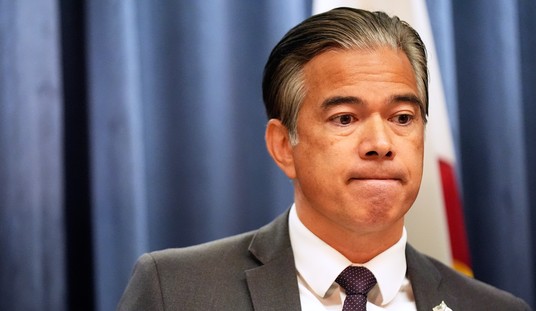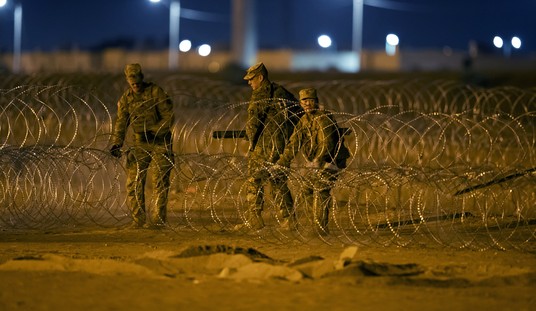Amid escalating violence in Iraq, the president announced on Thursday that he had come to the pained decision to commit up to 300 special forces troops to secure American interests in Baghdad and to train and equip local security forces. While he spent much of his time behind the podium assuring a war-weary nation that he was not committing to new military operations in Iraq, he left the door open to take “targeted and precise military action if and when we determine that the situation on the ground requires it.”
President Obama also did his best to dissociate himself and his administration from the roots of the present crisis in Iraq by referencing the months of debate which preceded the 2003 invasion of Iraq. Obama did betray the fact, however, that several of the actions he took since taking office in 2009 also contributed to the present crisis.
When asked if he regretted not securing a Status of Forces Agreement with Iraq in 2011 which would have left a residual American troop presence behind to secure the fragile peace won following the 2007 troop “surge,” Obama didn’t answer the question. Instead, he insisted that a SOFA was beyond his administration’s control.
“Keep in mind, that wasn’t a decision made by me. That was a decision made by the Iraqi government,” Obama said. Noting that the U.S. offered to leave behind a “modest” troop presence, he noted that Maliki’s government refused to extend legal immunity to American troops.
This is true, but the Obama administration did not use one ounce of the maximum leverage over Nouri al-Maliki that they had at the time in order to secure legal immunity as part of a SOFA. As Commentary’s Peter Wehner noted, this process was chronicled in depth by the New Yorker’s Dexter Filkins:
“The leaders of all the major Iraqi parties had privately told American commanders that they wanted several thousand military personnel to remain, to train Iraqi forces and to help track down insurgents,” Filkins said. “The commanders told me that Maliki, too, said that he wanted to keep troops in Iraq. But he argued that the long-standing agreement that gave American soldiers immunity from Iraqi courts was increasingly unpopular; parliament would forbid the troops to stay unless they were subject to local law.”
President Obama, too, was ambivalent about retaining even a small force in Iraq. For several months, American officials told me, they were unable to answer basic questions in meetings with Iraqis—like how many troops they wanted to leave behind—because the Administration had not decided. “We got no guidance from the White House,” [James Jeffrey, the Amerian [sic] Ambassador to Iraq at the time] told me. “We didn’t know where the President was. Maliki kept saying, ‘I don’t know what I have to sell.’” At one meeting, Maliki said that he was willing to sign an executive agreement granting the soldiers permission to stay, if he didn’t have to persuade the parliament to accept immunity. The Obama Administration quickly rejected the idea. “The American attitude was: Let’s get out of here as quickly as possible,” Sami al-Askari, the Iraqi member of parliament, said.
From this account, it would seem that the White House viewed the minor obstacle presented by the immunity question as a welcome roadblock which they could use to prevent any residual force agreement. Filkins claims that the president was, in fact, quite pleased by this outcome.
“Ben Rhodes, the U.S. deputy national-security adviser, told me that Obama believes a full withdrawal was the right decision,” he wrote.
Obama’s behavior during the 2012 presidential debates seems to corroborate the impression Rhodes left Filkins. “What I would not have done is left 10,000 troops in Iraq that would tie us down,” Obama insisted, via Guy Benson. “That certainly would not help us in the Middle East.”
Had a SOFA been negotiated, it may have helped prevent the present crisis from spiraling out of control. Of course, the present crisis in Iraq may have been avoided entirely if ISIS, along with other anti-Bashar al-Assad forces, been contained in Syria.
“Obviously what’s happened in Syria, in part, is the result of Iran coming in hot and heavy on one side,” the president observed. That’s no way to talk about a regional partner with whom we have “shared interests” in Iraq.
“If its view of the region only is solely through sectarian frames, they could find themselves fighting in a whole lot of places,” Obama continued. “That’s probably not good for the Iranian economy for the Iranian people over the long-term either.”
“I suspect that there are folks in Iran that recognize that,” he added. “An Iraq in chaos on their borders is probably not in that their interest, but old habits die hard.”
Pursuing regional hegemony through indirect military action via proxies like Hezbollah (which continues to fight alongside pro-Assad forces in Syria) is absolutely in what Iran views as its national interests. Furthermore, chaos on Iran’s western border is, while suboptimal, acceptable if it secures for Tehran to a puppet government in Baghdad – as it apparently is, in the absence of an American counterweight.
Obama confessed in this moment to the fact that the present crisis in Iraq is the result of the West’s refusal to act on its rhetorical commitment to containing the Syrian civil war. Even the president claimed, while making the case to the nation in favor of intervention in Syria during a September, 2013 prime time address, that containing that conflict would prevent greater conflicts down the road.
Well, down the road we are, and it’s been quite a rocky one.
The president’s supporters are oddly comforted by the notion that the commander-in-chief is a hostage to forces beyond his control. The most zealous of them insist that any suggestion that Obama can exercise agency over events subscribe to the theory that the president is a superhero. This is puerile foolishness.
It is true that the president cannot shape events in the past, but he can take preventative measures now which prevent a greater crisis from developing later on. Obama passed on one such opportunity in 2011 and again in 2013. Today, he has another opportunity to contain a rapidly expanding conflict in the Middle East. Let’s all pray he decides that this crisis is within his power to address.








Join the conversation as a VIP Member